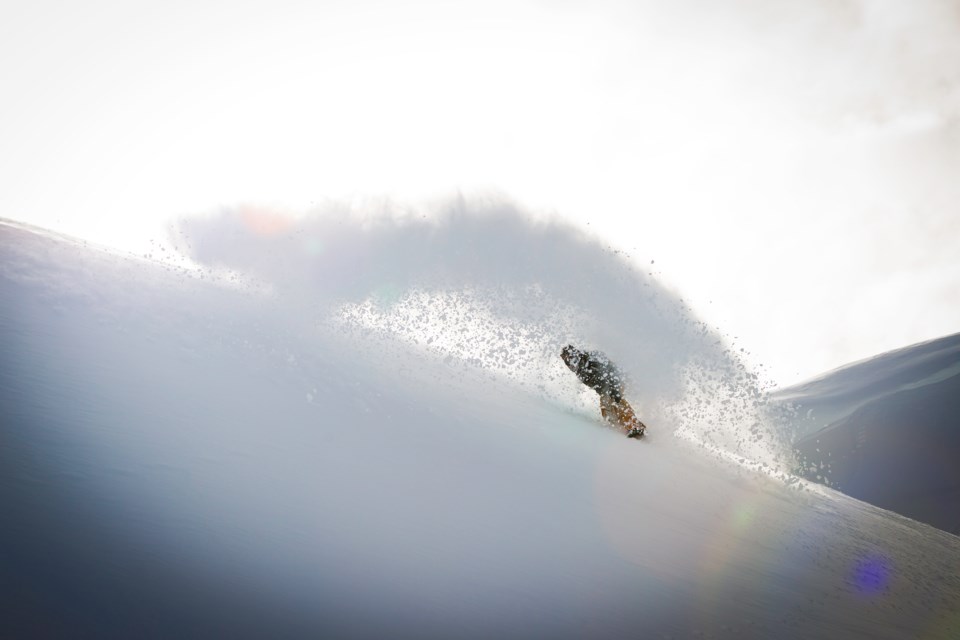It’s been a wild year for B.C. in terms of climate events.
This summer, the province experienced record-setting heat waves and destructive wildfires. This month, it was record-setting rainfall and destructive flooding, with a few landslides thrown into the mix. Both events caused deaths.
With more rain expected to fall this weekend, I’m now wondering what weather-curveball the planet will throw our way this winter. Hopefully it’s the gift of an ideal powder-day-to-bluebird-day ratio, but back to that later.
Simultaneously, we had global leaders at COP26—the U.N. climate summit described by former U.S. secretary of state John Kerry as the “last best hope for the world to get its act together”—making decisions earlier this month about how best to limit the Earth’s temperature rise and, hopefully, avoid the worst possible effects of climate change. The kind of effects that remain abstract to most of us.
The decisions these leaders made were disappointing. Major emitters like China and India couldn’t even agree to phase out coal, the highest-polluting energy source, as was initially pledged in a Glasgow Climate Pact draft. Instead, watered-down wording means these nations only committed to “phase down” their use of coal.
As an individual without a seat at these summits, it’s easy to feel helpless or frustrated by more seemingly empty promises. To me it’s just more evidence that we can’t solely rely on governments to solve the climate crisis.
There are personal choices we can make that will, at best, make a difference when tallied up and, at worst, offer a pseudo-sense of control driven by the knowledge that at least you’re doing your best. But still, the prospect of overhauling part of your life can be daunting, whether it’s ditching your vehicle for public transit, cutting down on air travel or even just resisting when the online shopping impulse strikes.
After catastrophes like the ones seen in B.C. this year, a narrative often emerges framing these events as motivation to do more, through op-eds, tweets and Instagram captions offering variations of the “If we don’t want it to get worse, we need to act now” message.
And they’re not wrong. As severe climate events become more common, I hope the palpable, sometimes-life-ruining effects of these events are incentive enough to kick us all into gear.
That said, I think positive reinforcement beats fear.
Amid all of the atmospheric rivers and washed-out highways, Thursday is Whistler Blackcomb’s opening day. Or as I like to think of it, locals’ Christmas morning.
I didn’t always look forward to November. I had a perfectly suburban childhood where, despite many hours spent causing trouble outside, most of the activities that really kept me going weren’t overly reliant on Mother Nature. Hockey was played in rinks, tennis had indoor courts, dance was in a studio, horseback riding took place in a barn. (I had a short attention span.) Ten-year-old me would have picked a heated swimming pool over a lake any day of the week.
Winters in Eastern Ontario were more of an inconvenience than anything, with slushy roads and freezing rain and wind so cold it hurt. Spending time outdoors in the colder months only became something worth looking forward to after I started snowboarding.
Falling in love with snowboarding—and then with Whistler, and then with this province, and then with nature in general—changed my entire outlook on climate change. It’s not just abstract threats about rising sea levels or devastating droughts anymore. Now, I feel connected to both a place and an experience that are at risk of—potentially, eventually—being lost to climate change. Imagine a wildfire ripping through your favourite tree zone, or a winter filled with rain instead of snow. That realization lit a fire that makes me want to do what I can to protect them.
And it’s not just me, apparently. A 2017 UBC study found that children who spend time playing outside are more likely to appreciate and protect nature as young adults. Meanwhile, a 2015 paper by John M. Zelenski from the esteemed Carleton University (my alma mater, not that I’m biased), published in the Journal of Environmental Psychology, questioned whether there’s a link between connecting with nature and behaving sustainably. In three separate studies, researchers found participants’ exposure to nature resulted in increased cooperation, and, “when considering environmental problems as social dilemmas, sustainable intentions and [behaviour.]”
There will always be conflicting interests—the idea of Whistler’s entire economy depending on tourists hopping on jets or into vehicles, for example—just like there will always be debates about the best way to slow climate change. But I think if more people can find their way into the mountains, breathe in the fresh air, glide through some frozen water and remind themselves of what’s worth protecting, we’re halfway there.
Happy opening day!




